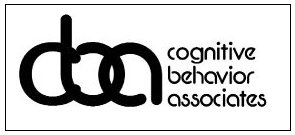PSYCHOLOGICAL FACTORS AFFECTING A PHYSICAL CONDITION
Psychological factors affecting a physical condition are a disorder that is diagnosed when a general medical condition or symptom that one experiences is affected by psychological or behavioral factors. For example, people who experience a medical illness may find that their symptoms and feelings about their illness are even worse because of the other mental health issues they may be experiencing. These psychological issues may have an affect on the medical issue, and even get in the way of treatment. In some cases it may even contribute to general quality of life in dealing with the medical condition. In addition, these factors are not part of another mental disorder (major depression).
Of course whenever we experience a medical illness there can be associated fears, anxieties and sadness in dealing with treatment and the consequences of having the illness. Medical illnesses are potentially affected by these psychological and other behavioral factors (what steps we take to manage the illness), as well as social and environmental factors, such as employment status, poverty, relationships, and neighborhood. There is great variation in how patients respond to medical illnesses and the degree to which psychological factors contribute to the experience of the medical condition.
This disorderfocuses on interactions between mind and body. In other words, it is clear that psychological factors have a great impact on the experience of medical illnesses. In most patients with medical conditions, there are also effects in the other direction (i.e., medical illnesses affect ones ability to function). Cognitive factors can impact the experience of pain. For example the way one thinks about and deals with the pain created by a medical condition can either increase their experience of it or even decrease it leading to a lessened experience of pain. Cognitive factors can also impact the experience of a medical illness. For example dealing with a scary medical condition can lead to feeling helpless, self doubt, and fears about the ability to manage the illness and more negative emotions, such as pain-related anxiety, depression and anger.
What is Psychological Factors Affecting Other Medical Conditions?
The symptoms of this disorder include:
- Having a true medical symptom or condition that is not a mental disorder
- Having thoughts or behaviors that negatively affect the medical condition - either by:
- Making it worse or stopping recovery
- Affecting treatment of the condition
- Having stress or showing unhealthy behaviors. This could include saying symptoms aren't happening or not doing what the doctor tells you to do.
These issues are not explained by another mental disorder, such as panic disorder, depression, or PTSD/posttraumatic stress disorder.
The condition can be:
- Mild –This can increase health risk. For example, the person doesn't regularly take a required medication.
- Moderate - affects the underlying medical condition. For example, the patient has anxiety that makes it difficult to do the exercises that are required to manage the condition effectively.
- Severe - requires a visit to the emergency room or causes the person to have to be in the hospital.
- Extreme - results in severe, life-threatening risk. For example, the person ignores symptoms of a stroke.
The prevalence of psychological factors affecting other medical conditions (PFAOMC) is not clear because the disorder describes many possible interactions in the relationship between thoughts, feelings and behaviors related to the illness and the full range of general medical diseases. The prevalence of this disorder may be large. The disorder can occur at any age, including in children and the elderly.
In order to be diagnosed with this condition, the person must also have at least one medical condition.
Etiology
Factors that may contribute to this disorder include: genetics, neurobiology, and cognitive and social functioning. Factors that may trigger these behaviors include: illness, infection, trauma, or abuse.
People with chronic pain often have the onset of new depression, and this depression can predict the onset of new chronic pain and other medical complaints.The prevalence estimates of major depression in chronic pain vary from 5% to 87% but are clearly significant. In general, research has shown that the relationship between pain and depression suggest that chronic pain precedes depression.
How is Psychological Factors Affecting Other Medical Conditions treated?
Treatment includes learning about the effects of thoughts feelings and behaviors in dealing with the medical condition. It also includes behavioral therapy to help the person deal with their condition and to follow treatment recommendations for the medical condition.
Click here to read more on Scribd.

